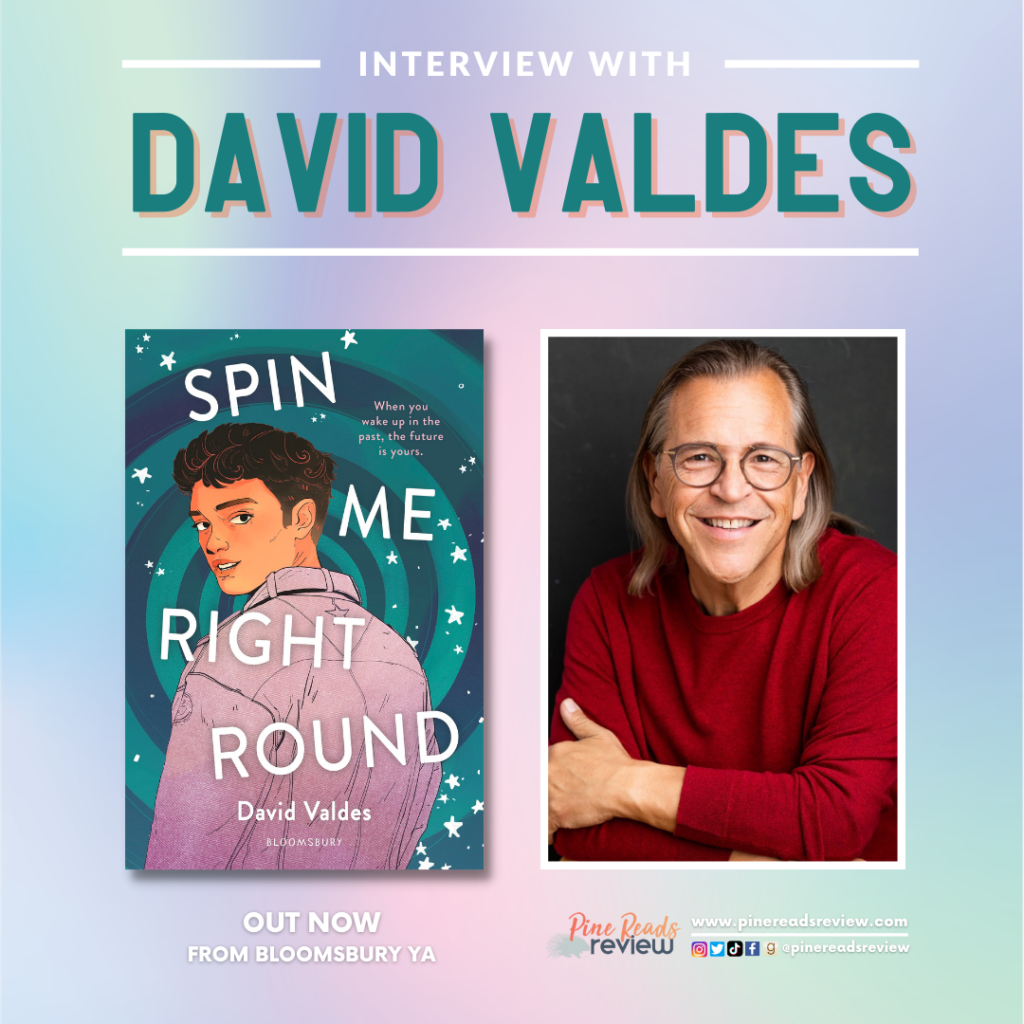
About David Valdes: “David Valdes is an award-winning writer of drama, fiction, and nonfiction. His essays and columns have appeared in the New York Times, Boston Globe, Huffington Post, and Medium. He is the author of Homo Domesticus, A Little Fruitcake (a Today Show Top 10 Holiday Books pick), The Rhinestone Sisterhood, and Spin Me Right Round. He is the author of more than a dozen plays staged coast to coast and overseas. Some titles appear under his married name, Valdes Greenwood.” (Bio taken from Amazon Books.)
Find David Valdes on the following platforms:
I would like to thank David Valdes for speaking with me about his new book Spin Me Right Round, out now! Find our review here!
David Valdes (DV): When I was little, my mom read to my brother and I every night, and I was in love with stories immediately. By the time I started first grade, I was reading middle grade novels and checking out as many books as my library would allow.
DV: It was the fastest I have ever written anything ever. Once the idea hit me, I just knew what it was and what I wanted, so I wrote around the clock for 8 weeks. Luckily, inspiration hit when I was on summer break!
DV: I do a lot of pre-writing on my characters and getting to know them first. When I know them well enough to draw them (weird, I know) then I can start writing. As for plot, I always have a rough plot map in mind to follow, knowing that characters might lead me somewhere else—and when they do, I re-map. I never fully pants it, as they say.
DV: I wanted there to be Cubans in books (or tv or movies or anywhere!) when I was kid, so I knew he would be Cuban-American like me. And he had to be not just gay, but out and proud. I think the only two gay Cubans I’ve seen in media were Renaldo Areinas in Before Night Falls and Elena from One Day at a Time.
DV: I have had a number of teachers who were really instrumental in my sense of self. The first person who ever said anything positive to me about gay people changed my whole view of what was possible in the world.
DV: I loved the romantic bits—the promposal scene, for instance—but also anything to do with Ernie, a character who was a bit player who talked me into turning him into a main role. Plus, it was fun to write Luis’s voice the whole time.
DV: Because that’s the story of my whole life! From back when I was in the closet in a town where people knew me only as “Spanish” (Cuban was too big a leap) all the way to today, where I see how my queer kids and kids of colors have to navigate otherness even in liberal settings, otherness and owning that difference has been.
DV: I have loved time travel stories since I was a kid, not just Connecticut Yankee but Francine Pascal’s Hangin’ with Cici and movies like Back to the Future—which I saw in the theater three times. I chose the 80’s because my daughter was fascinated by the time period when we watched Stranger Things 3 together—seeing it through her eyes, I thought it would be fun to do a little time travel to my own era.
DV: We tend to forget sometimes that, for all our progress and the greater embrace from society, what it was like not so long ago. I wanted kids to see what it was like to navigate that peril all the time. But, of course, these things still happen, even though we sometimes act like those days are over.
DV: Brighter than the Moon, a love story about three kids trying to wrestle with the difference between how they are online and how they love in real life, comes out next January. And my agent is shopping around Last Seen on Bridge, a book about the effect on a small town when a gay teen goes missing.
PRR Writer and Editor, Ami Jones